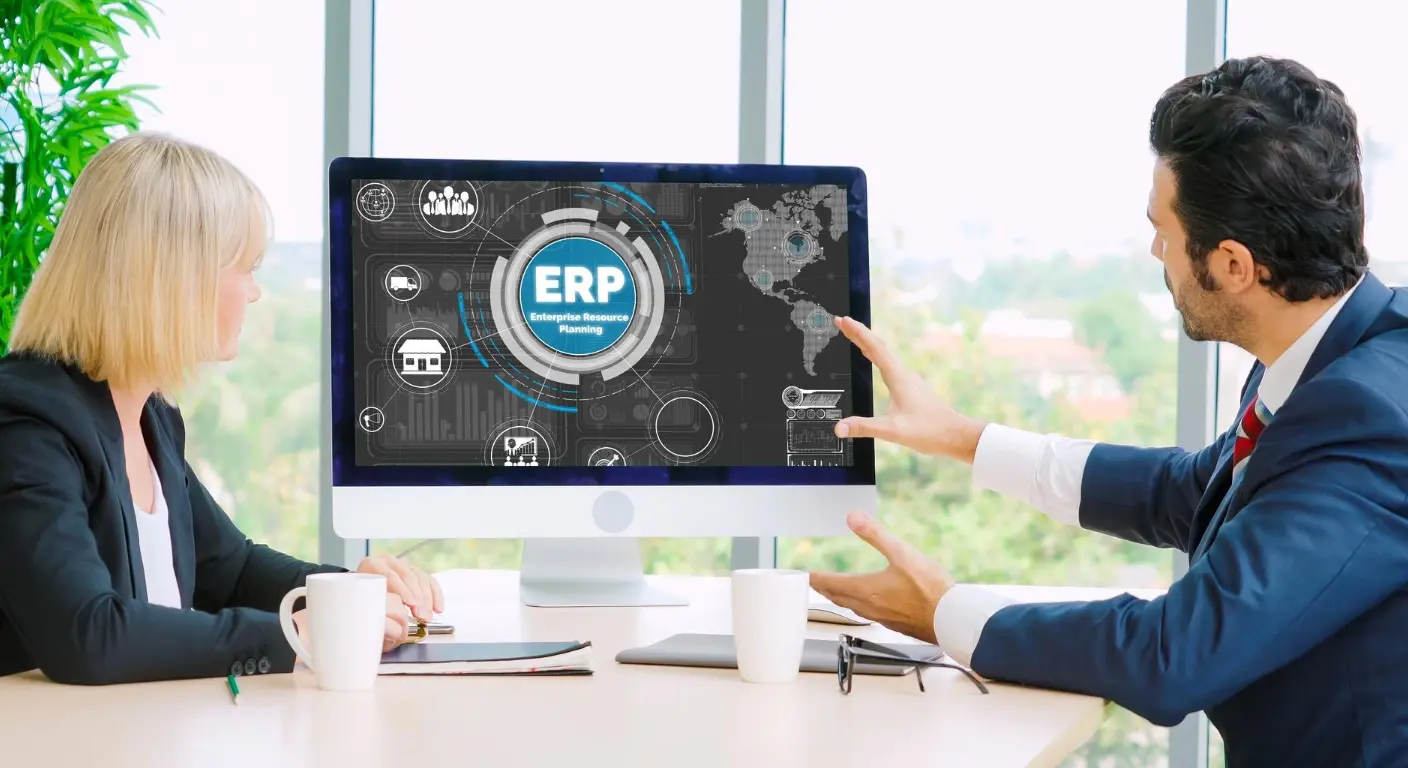

Successful ERP Project Management

Enterprise resource planning project management (successful ERP project ...
- Tags:
- ERP
Enterprise resource planning project management (successful ERP project management) is a full-time job that requires and also ties up extensive resources. Unfortunately, this is often neglected or suppressed in many ERP projects ...
What Needs to be Done to Achieve Results
Enterprise resource planning project management (successful ERP project management) is a full-time job that requires and also ties up extensive resources. Unfortunately, this is often neglected or suppressed in many ERP projects. When initiating an ERP project, it seems to be an easy requirement to fulfil, which is gladly promised. It is not uncommon for the ERP project manager resource to be limited and the time for the project to be reduced during the course of the project.
ERP project management is one of the keys to the success of a software implementation. Therefore, business owners, Chief Information Officers (CIOs), the traditional I.T. leader and project managers need to understand the importance of effective project management.
More difficult, but equally important, is that business leaders and stakeholders understand the implications, factors and the influences that characterise effective project management.
Effective project management ensures that the direction of the project is maintained and the goal is not lost sight of.
ERP project management monitors time, project budget and project scope. In addition, ERP project management ensures that the team and all stakeholders stay together and guides them through all the ups and downs during the course of a project. Effective ERP project management also ensures that goal achievement always remains in focus and, most importantly, that the project does not lose sight of the planned improvements in business process value creation or efficiency gains and that it achieves the agreed goals. This is particularly important in an ERP project to maintain the balance between the newly introduced technology and the people involved in the process. From our experience, the implementation and thus the use of a change management system is mandatory in order to pick up the people involved and prepare them for the new tasks or processes.
Successful ERP Project Management is a Crucial Component for I.T. Project Success.
Some of the most important elements are:
- Alignment of strategic goals: Business and project goals must be aligned and mutually supportive.
- Clear goals: the project team has a clear guideline for accomplishing the tasks at hand and is focused on the project goal.
- Realistic project planning: the project team sets the right work packages and tasks as well as the completion dates based on accurate data.
- Quality management: Project managers ensure the quality or use of project deliverables (software use, training, test scenarios, legacy data transfers, etc.).
- Risk management: Project managers put themselves at the forefront of problem solving and also find solutions as quickly as possible.
- Project monitoring: the project manager monitors and controls the project and reacts immediately to intervene if necessary and to possibly adjust the further procedure.
- Communication: communication across all areas to project members and project briefing at all management levels to explain to all staff and team members the status of the project and incorporate any improvements by staff.
- Feedback: Regular positive and honest constructive feedback to team members is an important factor for project work.
ERP Project Managers Need to Set Up a Comprehensive Project Plan.
Points of Consideration for an ERP Introduction and for ERP Success?
- Project planning must be based on realistically achievable deadlines and milestones to give an essential overview of the project sub-goals and when they can be achieved.
- There must be a set of sub-goals that are important for the project. This of course includes knowledge of the organisational structures and their strategy as well as the business objectives of the individual departments.
- The plan must define the scope of the project so that the team and its clients know how much resources will be needed for the IT and organisational project.
- It should also address any issues that may delay or hinder the timely implementation of an ERP project.
- A project plan must define clear resource allocations, division of labour and, most importantly, checkpoints to ensure that everyone involved is doing their job. The project plan is also used to guide the team as to when what will be done in parallel or sequentially and when milestones are defined.
- A project plan must have an established budget. The project manager must define oversight and budget tracking as an essential part of his or her work. This can ensure that deviations are identified immediately and that the project manager can develop and implement measures to correct them.
- Strong project managers believe in the success of their project and are not afraid to ask for help when it is needed. It is not uncommon for precisely this project work - ERP project management - to be brought in as temporary work with know-how from experts outside the company. IT projects are often so complex that it can be worthwhile to bring in capacity, knowledge and best practice from outside.
Summary
Project management is only effective if it can work with a comprehensive plan and maintain an overview. A good project manager must create a coherent project strategy and project implementation plan. This must be shared at all levels of the organisation. This ensures that resources from the individual departments can be realistically planned and actually made available to the project.


/Herr_Dreher_500x500.jpg)



